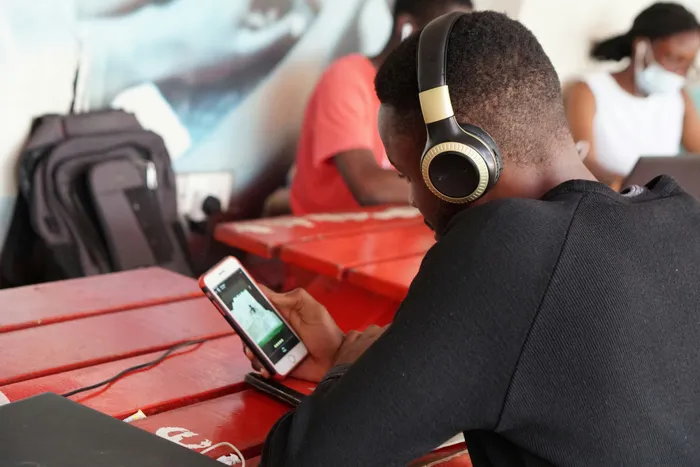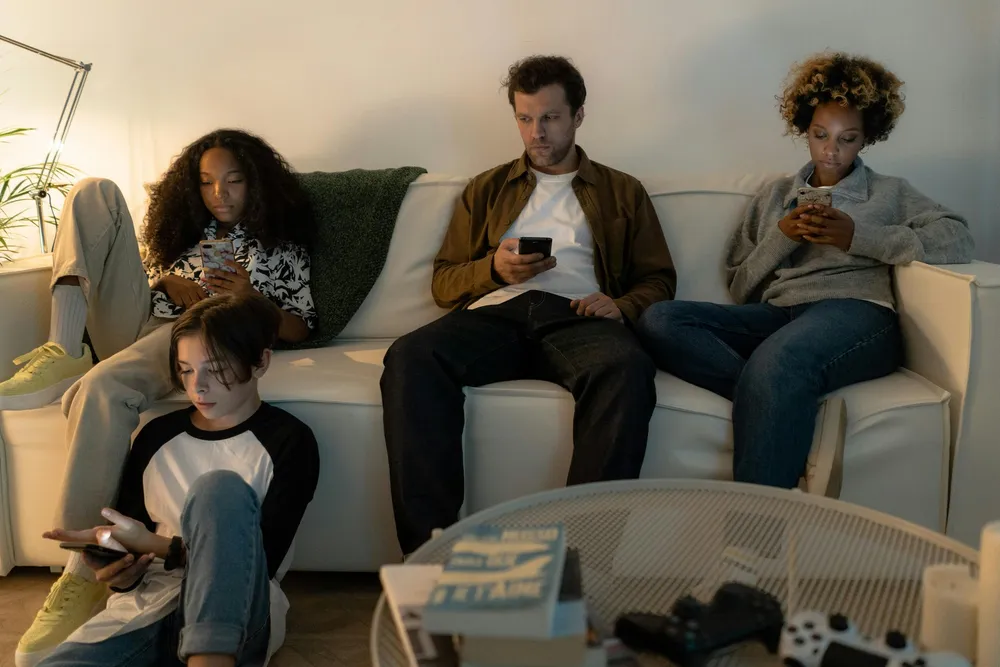Johannesburg — In a striking revelation, recent global data show that South Africans now spend nearly half of their waking hours glued to digital devices — a figure that raises both admiration and concern about the role of technology in everyday life.
According to the 2025 Global Digital Report compiled by We Are Social and DataReportal, the average South African user logs nine hours and 37 minutes online daily — far surpassing the worldwide average of about six hours. This places South Africa among the highest in terms of daily internet engagement globally.
At first glance, these numbers may signal success: a nation deeply connected, harnessing technology for communication, commerce, and education. But the same numbers also provoke deeper questions: Is this level of screen time empowering citizens, or is it breeding new challenges — from mental stress to lost productivity?

Table of Contents
Connectivity surge, but productivity gap widens in South Africa
South Africa’s internet penetration currently sits at roughly 72 per cent, a noteworthy achievement compared with many other African nations. This expansion of digital access has unlocked new pathways for information, remote work, and social interaction.
Yet, in a country grappling with youth unemployment rates exceeding 30 per cent, a disconnect looms: high screen time does not automatically translate into high economic output. Countries like Germany and Denmark average a little over five hours of internet use per day, and yet they far outpace South Africa in productivity metrics and GDP per capita.
While time online suggests engagement, much of it is not strictly work-related. Analysis from Meltwater (a media intelligence firm) in collaboration with DataReportal shows that common reasons for being online include:
- Searching for information — about 83.6% of users
- Learning how to perform tasks — nearly 79.9%
- Keeping in touch with family and friends — 72.5%
Social media platforms such as WhatsApp, Instagram, Facebook and YouTube dominate daily usage. At the same time, TikTok continues its meteoric rise, becoming a preferred escape for many.
One study by Nelson Mandela University, led by Prof. Kerry-Lynn Thomson, found that South Africans spend nearly three hours more online daily than the global average, with over 25 million active social media users in the country.
So while connectivity is growing, it is not always productive connectivity.

Attachment, addiction — and the emotional toll
Digital dependence appears real. In a 2024 survey conducted by Adoozy, a mobile power bank company, 92 per cent of participants admitted they could not go 24 hours without their phones; 64 per cent said even one hour without their device would test their patience. Nearly 40 per cent claimed they would rather sit through traffic than be without their phones.
And there are practical reasons for this dependence. In a society where safety is often a priority, 72 per cent of respondents said they had used their smartphones to avoid dangerous situations.
Still, the emotional cost of such extended usage can be steep. The World Health Organisation (2024) notes that prolonged screen time is linked to poor sleep, anxiety, social withdrawal, and a sense of inadequacy from constant comparison on social media.
While technology opens doors — to learning, escapism, connection, safety — it’s clear that the relationship is not purely beneficial. It demands balance, wisdom, and intentional usage.
Turning screen time into real value
South Africa’s status as one of the world’s most “connected” nations holds potential. But converting that engagement into tangible social and economic gains requires deliberate strategy and smarter habits. Here are three critical steps:
- Boost digital literacy
Access is not enough. Users should be equipped to distinguish meaningful content — educational, creative, business-related — from distractions. Training in critical thinking, online research, and digital skills will help. - Promote healthier usage habits
Schools, workplaces, and families should model and encourage breaks, “offline time”, and boundaries. Encouraging mindfulness about when and how devices are used can help prevent burnout. - Drive digital infrastructure toward impact
Policymakers and businesses should channel high usage toward sectors such as e-education, telemedicine, agritech, and fintech. This means creating platforms and incentives that turn engagement into job creation, innovation, and social uplift.

Conclusion
South Africa’s deep immersion in the digital realm is both a badge of progress and a signal that the next frontier lies in turning screen time into real outcomes. As the country navigates the tension between connectivity and overreliance, its journey offers lessons not just for itself — but for every nation wrestling with the double-edged sword of technology.
Join Our Social Media Channels:
WhatsApp: NaijaEyes
Facebook: NaijaEyes
Twitter: NaijaEyes
Instagram: NaijaEyes
TikTok: NaijaEyes





